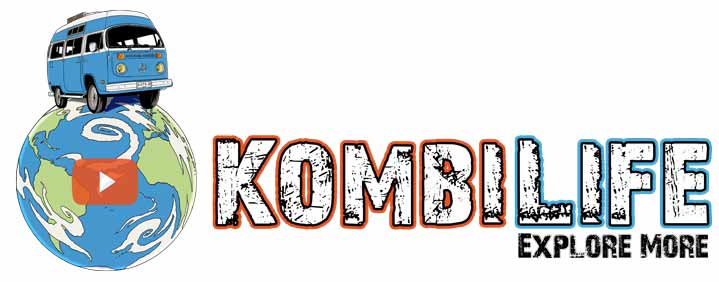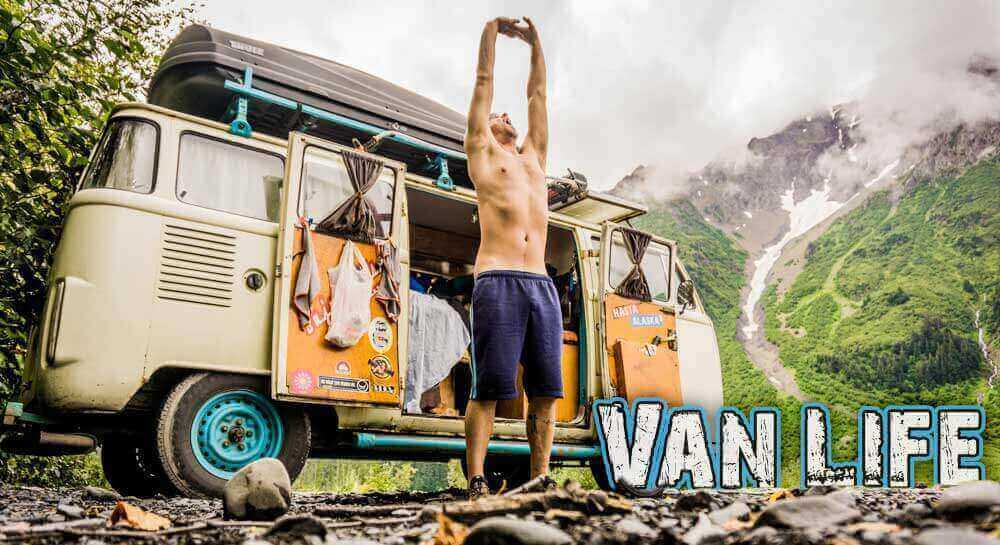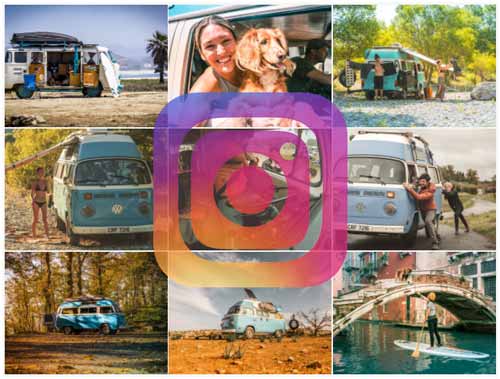Ecuador Amazon Road Trip

—Tough Times Ahead—
ECUADOR SURPRISED US. It was another reminder never to have plans whilst travelling. We had expected to pass right through this little-known country, straight on towards the much anticipated (and feared) Colombia. However an immediate change at the border, from the long dusty desert roads of Peru to the lush tropical banana plantations stirred a curiosity within the group.

So, there on Ecuador’s pacific coast we; Brad, Simone, myself and Alaska – the rapidly growing puppy – enjoyed the last of the flat roads whilst we fearfully anticipated another traverse of the Andes. No sooner had we down-shifted from 4th to 3rd did the engine start acting up. I say acting up, a recently fixed valve got jammed and took the head clean off one of the lifters, so it was major engine failure. However, for the first time we were unable to find a VW mechanic which left us with one option; a day-long, 9,350ft climb to Quito, Ecuador’s dangerous capital city…all in first gear.

Our arrival was warmly welcomed by the Quito transit police who must have thought Christmas had come early. We were rudely informed that a tow-truck was coming to remove our vehicle. As it transpired it was Thursday, and as everyone knows, it is forbidden for cars with license plates starting with ‘D’ to drive in the city on a Thursday. Although we were shocked, this wasn’t a completely alien concept to us. We knew that some of the larger cities in Latin America adopt similar policies for smog control purposes; however we were fairly sure the number of foreign plates in the city starting with a D wasn’t exactly causing global warming and so we called their bluff – actually we called the police. So with an impounding imminent, we enjoyed the bay-window view of hi-visibility jackets debating our future, fortunately the police we called had more authority than the transit police and we were allowed to continue our struggling search for a mechanic.

To say we were depressed about our situation is an understatement, we were gutted. 3 times in 3 weeks the engine had been out of Co’pito, and this time we needed a complete engine overhaul. With each new part we agreed to purchase, and each passing day we spent living in the mechanics the group mood soured further. By the time we left over a week later the damage had been done; Brad and Simone were growing closer together in their new romance, but the Kombi crew was growing apart.

—Ecuadorian Adventure Hunting—
Given the delicate situation, in that we were all living on top of each other, it was great timing for the Swiss couple to catch up with us in their Chilean Kombi, “Pepe”. As a team we were in no shape to be inviting other people to come and live with us, but we needed a new social intermediary, and if there is one thing you can always count on with the Swiss, it’s being neutral!


Having a Kombi convoy again set the stage for the best ‘test-run’ of our lives. It was also useful to have another 1600 to benchmark the performance of our as-new $900 engine, so we could be sure that when we broke down – and we did, just 80kms from the mechanics – that it was our engine and not strange anomalies brought about by the altitude changes for example.
Brad got to work fiddling with carb adjustments and distributor timing which gave us just enough power to make it past the impressive volcano Cotopaxi and up to Lake Quilotoa. As is usually the case with our chosen life-style, we are never exactly sure where we will wake up, especially when we arrive in the dark. As our half-frozen bodies stirred out of the unavoidable “3-way-spoon-train” we quickly realized that we were parked on the very lip of an extinct volcano. Once again we’d scored a champagne view on a lemonade budget.

It’s times like these when you most appreciate living in a mobile home. Peering out of the steamy windows at first light to the sight of traditionally dressed Inca women herding sheep, and the Bus swarmed by animals is a special moment; even more so given the unforgettable backdrop.
Obviously the lifestyle comes with its disadvantages; the lack of shower facilities being a major one. For us getting clean is often as much of an adventure as it is getting dirty. Bathing in icy sulfuric waters at 4000m above sea-level might not be everyone’s cup of tea, but let’s be honest, it’s a lake inside a volcano – it would have been rude not to.

Another advantage of not relying on tourist buses is that we can stop whenever and wherever we want to. After leaving Lake Quilotoa we noticed a trail of top-hat-wearing locals carrying bunches of chickens upside-down by their feet. It looked to be a sizable Andean market, our favorite source of cheap-eats. Heading into the crowd, head and shoulders (and sometimes elbows too) above everyone else we could feel the curious stares of the locals burning into us with every step. The only thing we felt more was the rumbling of our stomachs, we could have eaten a horse; no literally, we could have if we’d wanted to. Instead we opted for a plate of “cuy” a typical jungle rat not to dissimilar to guinea pig.

Bellies full of the thick skinned rodent, the kombi convoy descended a couple of thousand meters into Ecuador’s temperate rain forest. Baňos, so called for its abundant supply of thermal hot pools, is a staging ground for all manner of adventures in Ecuador. We’d been in town for a few days before we realized that we were actually camped at the foot of a 5000m (16,400ft +) volcano, a volcano that had just started erupting. Not wanting to miss out on an adventure the 6 of us piled into Co’Pito and headed up the closed road. The climb was tough for Co’Pito, in places the road was completely blocked due to on-going land-slides and earthquakes. When we got out to inspect the route we could feel in our chests the vibrations of the aptly named “throat of fire”. It made us feel very small but whilst people were fleeing in the opposite direction, we were determined to find another way up.

After many hairpins and a lot of pushing we made it to the end of the road. There we found a collection of houses where the government had been pleading with the stubborn locals to evacuate. One lady told me that she just couldn’t bear to leave her tomatoes to fend for themselves. Another insisted that we venture no further due to rock missiles and lethal sulphuric gases coming from the crater.
It was getting dark during the steep and slippy decent, not exactly the ideal time for the alternator to stop working in Co’Pito again. So without headlights and mostly freewheeling we returned to base-camp to make yet more repairs.
—Welcome to the Jungle—

We were keen for more adventure, but the packaged tours in Baňos didn’t really appeal to the independent nature of our journey. We wanted to visit the Amazon jungle, but were not keen on leaving the Kombi’s and joining a tour group. A few years earlier I’d had a similar problem in Borneo where I had wanted to learn more about the Iban headhunters. To ensure an authentic experience I took several days of boats into the jungle and went about making local friends in a remote market town. Here the plan was essentially the same.

Once we were fully loaded with food, water, Parana fishing gear and a brand new pet – Bibi the chicken, we headed into the stifling humidity of the Amazon jungle, down the longest dead-end road we could find. As it took a few days to reach the end of the road, fuel was a bit of an issue and we lost several hours traversing rivers and dirt tracks searching for the elusive liquid. Our peculiar procession was welcomed in every night by different indigenous families; each time they were as curious about us, as we were about them.
Not all of our encounters were friendly however, at times a petroleum company refused to let us pass, guarding the way with vicious dogs. Still, they were much easier to talk our way around than the tattoo covered chief who was outraged at our arrival at his remote village. The fact that he didn’t speak one word of Spanish made negotiating passage out of the question. Eventually we found a boy who could translate our bad Spanish into the relevant jungle tones and begrudgingly he accepted our gifts and let us pass.

When the dusty track finally ran out we were welcomed by the beaming smile of Wilson. Before long we had ditched the Kombis and had accepted the friendly offer to visit his road-less settlement further up-river. It didn’t take long for whispers of our arrival to get around the small village and no sooner had we put our bags down than were we whisked away by a group of jungle kids to meet the baby python that they had just found in a cupboard.

Having trekked a few times in tropical jungles I knew that the prospect of the adventure can be more romantic than the reality – the heat, humidity, mud and insects are too much for all but the most determined explorers. However, knee deep in mud and several hours into an adventure on the village’s hunting trails, it was hard not to be energized by the 20-strong team of kids who were leading the way – we were having the time of our lives. The kids were practically fighting with each other to climb trees and bring us the most delicious fruits, canes and vines.
As evening fell the 6 of us, absolutely exhausted and looking like we’d spent the weekend at Glastonbury festival, washed our mud soaked bodies side-by-side with our new friends. There in the river we played, as no doubt their fathers and grandfathers did before them, until the light faded from the day and the insects started their intense jungle chorus.


It’s for moments like this I will never forget trying to ‘pass right through’ Ecuador. As we ceremoniously crossed the equator into the northern hemisphere, we broke down for the 4th time with our new engine. The Swiss had taken a different route with their Kombi and there was nobody to act as a mediator. Tempers flew off the handle, the group turned cannibalistic and our happy family of 4 could continue no more. Nevertheless there was no escaping each other or our forever failing Bus. We were crossing into Colombia, over the most dangerous border in South America; friends or not we had to stick together.
Read More from our Off-Camera Adventure in South America in our Overlanding Story e-book:









